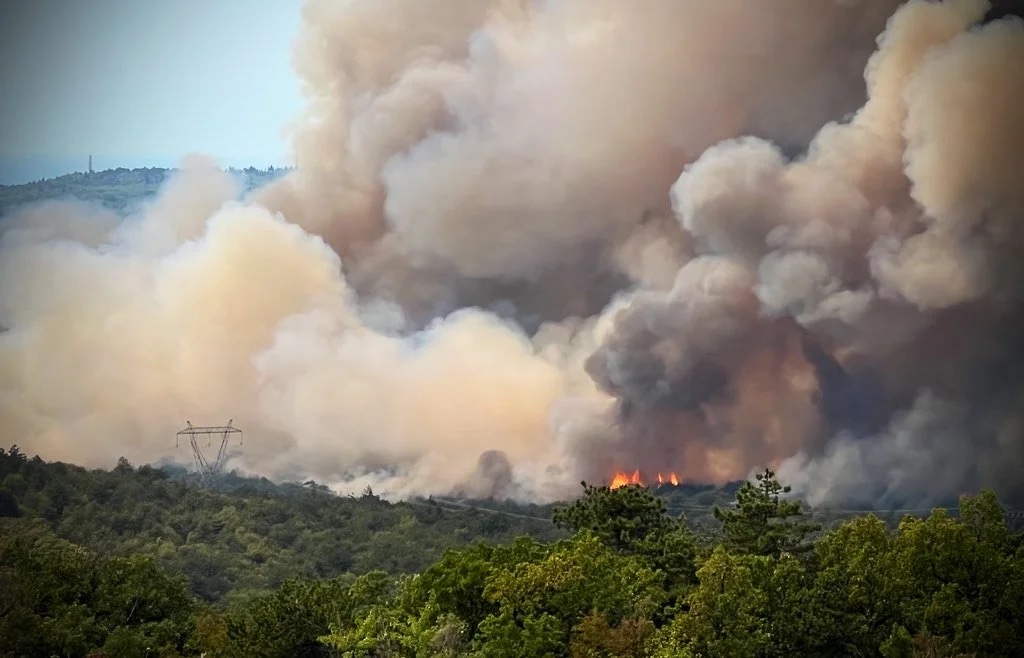While the echoes of the Great War are now more than a century old, the vestiges of the deadly conflict remain. Bombs once heard more than 100 years ago are being heard once more as a deadly wildfire in the Kras region of Slovenia sets off unexploded ordnance from one of WWI’s bloodiest frontlines.
The fire has burned more than 8 square miles, and forced at least three villages on or near the Italian-Slovenian border to evacuate, including the border town of Opatje Selo, according to Task & Purpose. More than 1,000 firefighters and members of the Slovenian military are working to extinguish the blaze — made all the more difficult with the threat of the explosives.
“The problem is that because of the unexploded ordnance firefighting units cannot penetrate into the fire but can only act on its edges. This is why the fire is being intensively fought from the air as well,” Slovenian Defense Minister Marjan Šarec told the press.
Clash of Empires
Though the Kras region in western Slovenia saw less fighting than Soča river valley — which saw the titanic clash between Italy and the Austro-Hungarian Empire, resulting in over a million casualties — the area was the site of 12 battles during the war, with more than 200,000 soldiers killed. It also meant that the killing fields were rife with bombs and unexploded ordnances.
Unexploded ammunition from World War I and World War II are a problem that continues to plague Western Europe, particularly France, Germany and Great Britain.
Between 1940 and 1945, the Royal Air Force and U.S. Army Air Force dropped 2.7 million tons of bombs on Europe, half of that amount on Germany. Yet as many as 10% of the bombs dropped by Allied aircraft had failed to explode, according to Smithsonian Magazine.
Remnants of the Past
Along the Western Front, namely France and Belgium, the remnants of the First World War are still coming to the surface. About 1.5 billion shells were fired during the course of the war, with locals calling it the “récolte de fer,” or “iron harvest.”
In Slovenia, the fire is precipitating the nation’s own iron harvest. World War I historian Simon Jones told Task & Purpose that it’s highly unlikely the unexploded bombs now going off contain mustard gas or any other chemical weapons, but the sudden risk of an unexpected explosion is weighing heavy on those fighting the fire.
Local media reported that one explosion sent shrapnel flying right by a team of firefighters, but no one was injured in the blast.
Darko Zonjič, a member of a bomb team working to defuse the bombs told the Total Slovenia News that they had simply stopped counting the explosions because there were so many, with only the explosions close to roads being marked. Those other sites, Zonjič stated, will be inspected once the fire comes under control.
GET HISTORY’S GREATEST TALES—RIGHT IN YOUR INBOX
Subscribe to our HistoryNet Now! newsletter for the best of the past, delivered every Monday and Thursday.





